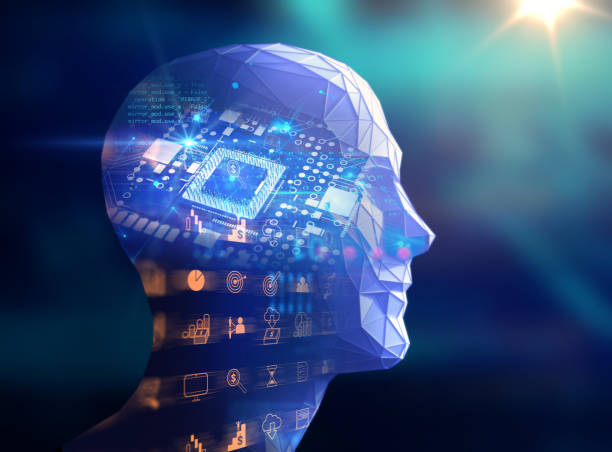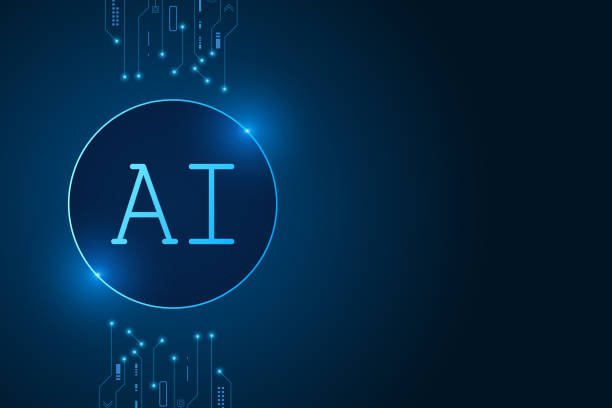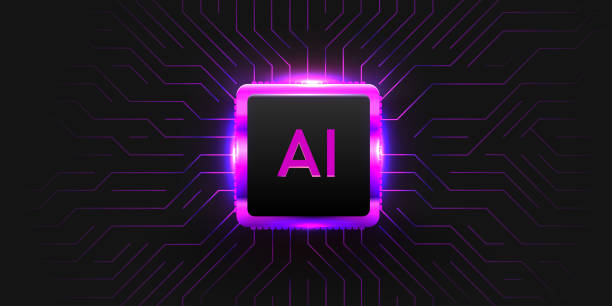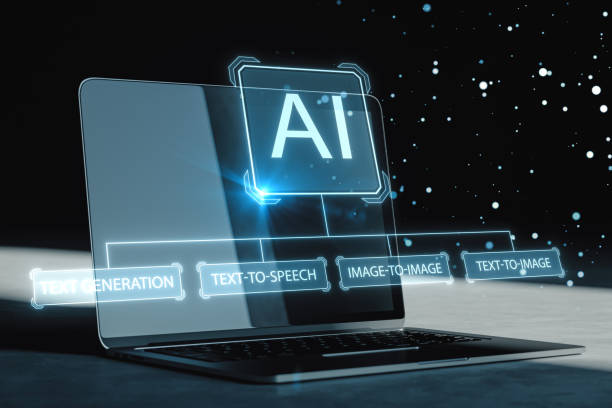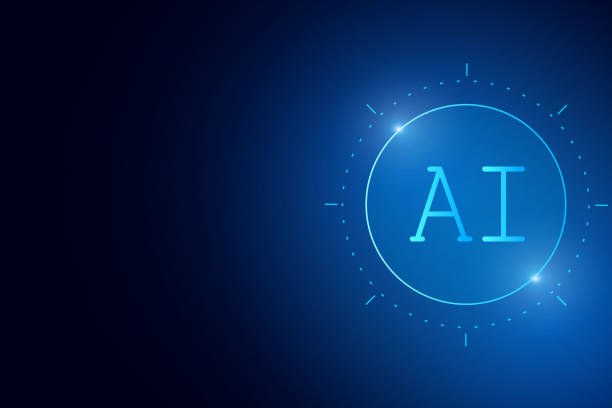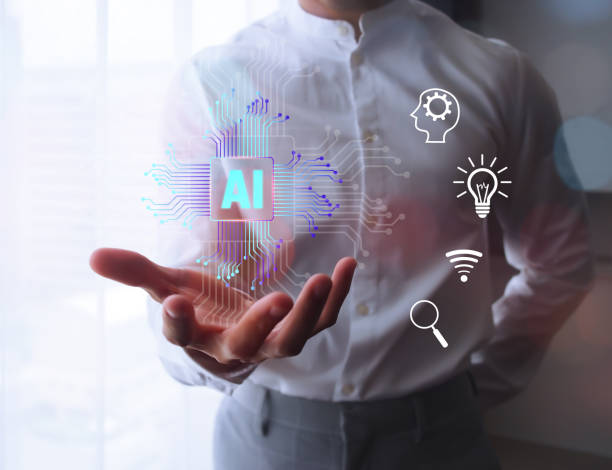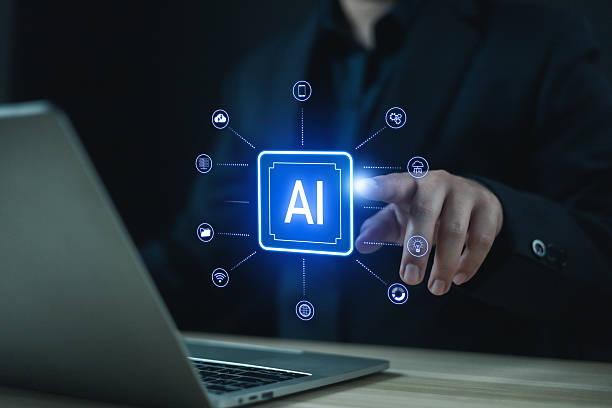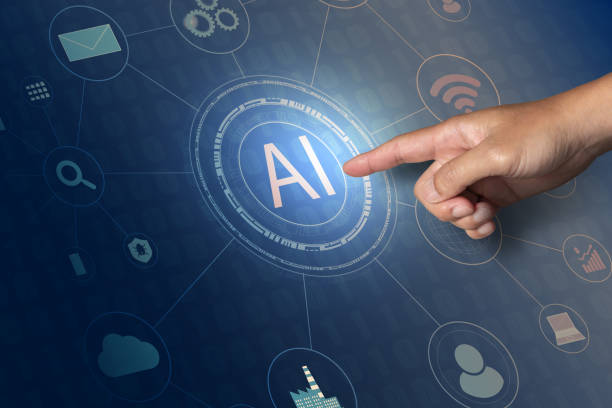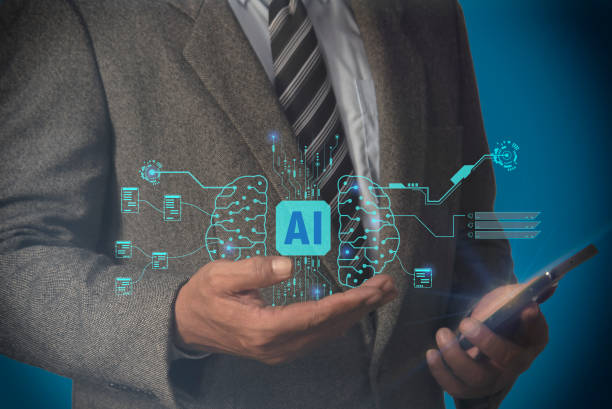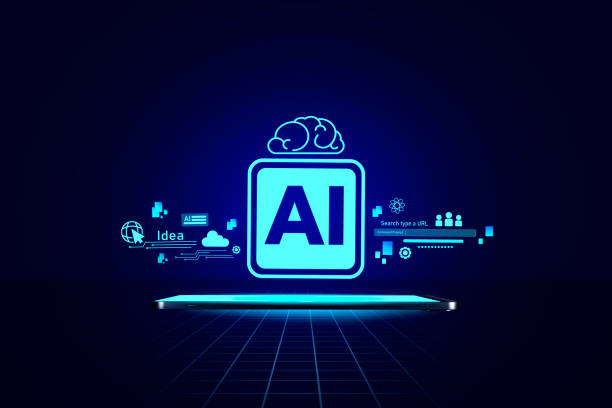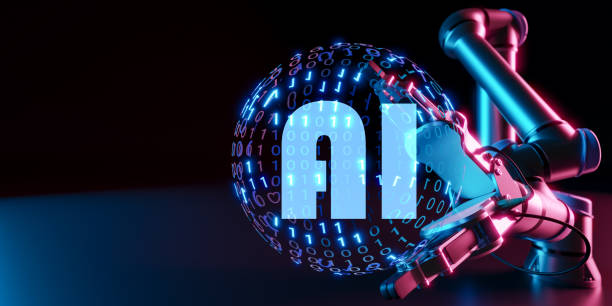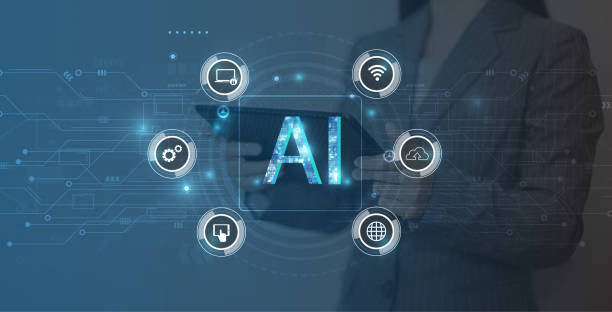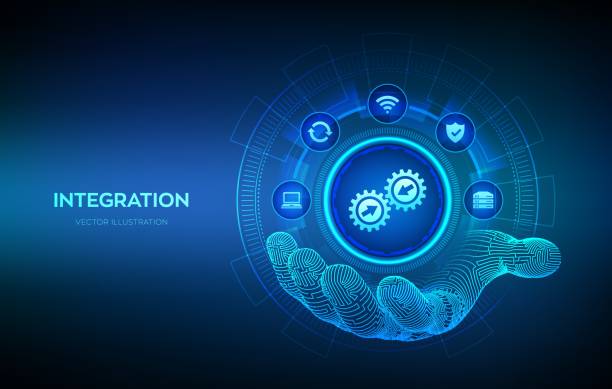What is Artificial Intelligence and Why Does It Affect Our Job Future?
Artificial intelligence (AI) is a branch of computer science that seeks to create machines that can perform tasks that typically require human intelligence.
These tasks include learning, problem-solving, pattern recognition, reasoning, and natural language understanding.
#ArtificialIntelligence is advancing at an accelerating pace and has the potential to change many aspects of our lives, including how we work.
The impact of AI on the job future is inevitable.
Some jobs will be fully automated, while others will require new skills to work with AI systems.
These changes can create both opportunities and challenges for employees.
Recognizing this potential and preparing to adapt to changes is the key to success in the future world of work.
In other words, the future of AI jobs requires investment in education and the development of AI-related skills to strengthen our workforce.
Although some traditional jobs may be replaced by automation, at the same time new and innovative job opportunities are created that were previously unimaginable.
Is your online store ready to attract maximum customers and increase sales? Rasaweb transforms your online business with modern and efficient online store design.
✅ Increased speed and improved SEO
✅ Excellent user experience on mobile and desktop⚡ Get a free consultation on online store design from Rasaweb!
Jobs at Risk of Automation with the Help of Artificial Intelligence
Automation caused by AI can have significant impacts on various jobs.
Jobs that are repetitive, routine, and based on specific rules are more at risk of automation.
These jobs typically include telephone operators, data entry clerks, basic accountants, and production line workers.
For example, AI-based accounting software is now capable of performing many of the traditional tasks of accountants, including recording transactions, preparing financial reports, and managing payroll.
This means that fewer accountants are needed to perform the same amount of work.
As a result, understanding the impacts of automation on the job future is essential so that individuals can update their skills and move toward jobs that are less at risk.
Click here to preview your posts with PRO themes ››
In addition, it is important to note that automation does not always mean the complete elimination of a job.
In many cases, automation can help employees do their jobs more effectively and have more time to focus on more complex and creative tasks.
However, to benefit from these advantages, employees must be willing to learn new skills and adapt to AI systems.
The job future of AI is bright if we can keep pace with developments.
New Job Opportunities Created by Artificial Intelligence
While AI threatens some jobs, it also creates new job opportunities.
These opportunities include roles in fields such as AI development, data science, machine learning, and robotics engineering.
For example, companies need data science professionals to analyze their data and extract insights that can help them make better decisions and improve their performance.
They also need machine learning engineers to develop and train AI algorithms.
In addition, the increasing use of robots in various industries has led to an increased demand for robotics engineers who can design, build, and maintain robots.
Therefore, the job future of AI requires people with specialized knowledge and skills in these fields.
In addition to technical roles, AI also creates opportunities in non-technical fields such as sales, marketing, and customer service.
For example, companies use AI to personalize the customer experience, provide better support, and automate marketing tasks.
This requires professionals who can work with AI systems and use them to improve their performance.
In short, the job future in the world of AI requires a combination of technical and non-technical skills.
| Job Title | Description | Skills Required |
|---|---|---|
| Data Scientist | Analyzing data to extract insights | Statistics, Machine Learning, Programming |
| Machine Learning Engineer | Developing and training AI algorithms | Machine Learning, Mathematics, Programming |
| Robotics Engineer | Designing, building, and maintaining robots | Mechanical Engineering, Electronics, Programming |
| Automation Specialist | Automating processes | Computer Science, Industrial Engineering, Data Analysis |
Key Skills Needed to Succeed in the Job Future with AI
To succeed in the AI job future, individuals must develop specific skills.
These skills include technical skills such as programming, machine learning, and data science, as well as soft skills such as critical thinking, problem-solving, and communication.
#Programming skills enable individuals to develop and train AI systems.
Machine learning helps them understand how these systems work and how they can improve them.
Data science allows them to analyze data and extract insights that can help with decision-making.
A deeper understanding of the future of work in this space can help you prepare for the challenges.
In addition, soft skills such as critical thinking, problem-solving, and communication are essential for working with AI systems and collaborating with other professionals.
Critical thinking enables individuals to evaluate information and make informed decisions.
Problem-solving helps them identify challenges and develop solutions.
Communication enables them to share their ideas effectively with others.
Finally, the job future of AI requires a combination of technical and soft skills so that individuals can effectively work with AI systems and contribute to innovation.
Did you know that customers’ first impression of your company is your website? Multiply the credibility of your business with a powerful corporate website from Rasaweb!
✅ Exclusive and eye-catching design tailored to your brand
✅ Improve user experience and increase customer attraction
⚡ Get a free consultation!
The Role of Education in Preparing the Workforce for the Future of AI
Education plays an important role in preparing the workforce for the job future with AI.
Education systems should focus on teaching the key skills needed to succeed in this field, including technical and soft skills.
This means that schools and universities should offer courses in programming, machine learning, data science, critical thinking, problem-solving, and communication.
They should also provide students with opportunities to work on practical projects that allow them to apply these skills in a real-world environment.
Do not underestimate the importance of learning programming for the future of engineering.
In addition, education systems should help students understand what AI is and how it works.
This will help them understand how they can use AI to improve their work and prepare for the changes that may occur in the workplace.
The job future of AI requires an education system that prepares people for continuous learning and adaptation to new technologies.
This means that education should not only be limited to learning specific skills, but also teach people lifelong learning skills.
Ethical and Social Challenges Arising from AI in the Workplace
The use of AI in the workplace creates several ethical and social challenges.
These challenges include concerns about privacy, discrimination, and accountability.
For example, AI systems can be used to collect and analyze data about employees.
This data can be used to monitor employee performance, make decisions about promotion and termination, and even predict their future behavior.
This can raise concerns about privacy and the potential misuse of data.
The job future of AI requires careful attention to these ethical aspects to prevent discrimination or abuse.
In addition, AI systems can be discriminatory if trained with discriminatory data.
This can lead to unfair decisions about hiring, promotion, and termination.
It is also important to consider who is responsible for the consequences of decisions made by AI systems.
The job future of AI requires the creation of legal and ethical frameworks that address these challenges and ensure the responsible and fair use of AI.
Strategies for Adapting to Job Changes Caused by AI
To adapt to job changes caused by AI, individuals must adopt specific strategies.
These strategies include continuous learning, developing new skills, and searching for new job opportunities.
Continuous learning allows individuals to stay informed of the latest developments in the field of AI and keep their skills up to date.
Developing new skills helps them prepare for jobs that do not currently exist.
Searching for new job opportunities allows them to find jobs that require their skills and are less at risk of automation.
The job future of AI requires individuals to constantly seek learning opportunities and prepare themselves for change.
In addition, it is important that individuals understand what skills will be needed for the future and invest in developing them.
This may include taking training courses, obtaining professional certifications, and working on practical projects.
Also, building a network of professional contacts can help individuals learn about new job opportunities and learn from the experiences of others.
However, to be able to get a good employment opportunity, you must have effort and perseverance
| Skill | Description | Learning Resources |
|---|---|---|
| Machine Learning | Ability to train machines to learn from data | Coursera, edX, Udemy |
| Data Science | Analyzing data to extract information | DataCamp, Kaggle, Udacity |
| Programming | Ability to write code to develop AI systems | Codecademy, freeCodeCamp, Stack Overflow |
| Statistics | Knowledge of statistics for data analysis and model evaluation | Khan Academy, Statistics.com |
The Importance of Lifelong Learning in the Age of AI
In the age of AI, lifelong learning is of particular importance.
Technologies are changing rapidly, and the skills that are needed today may be obsolete tomorrow.
Therefore, individuals must constantly seek to learn new skills and keep their knowledge up to date.
Lifelong learning can include taking training courses, reading books and articles, attending conferences and events, and learning from colleagues and other professionals.
It is also important that individuals learn from their mistakes and use feedback from others to improve their performance.
With this approach, the job future of AI will be brighter for those who are committed to continuous learning.
In addition, lifelong learning can help individuals adapt to changes in the job market and find new job opportunities.
This can help them remain professionally relevant and financially successful.
In short, lifelong learning is a valuable investment in individuals’ job future, especially in an era where AI is changing rapidly.
Are you worried about the low conversion rate of your online store and don’t have the sales you want?
Rasaweb is your specialized solution for having a successful online store.
✅ Significant increase in conversion rate and sales
✅ Professional and user-friendly design to attract customer satisfaction
⚡ Are you ready for a transformation in online sales? Get a free consultation!
The Role of Government and Organizations in Supporting the Workforce During the AI Transformation
Governments and organizations have an important role to play in supporting the workforce during the AI transformation.
They can help individuals adapt to these changes by providing training programs, creating new job opportunities, and supporting innovation.
Governments can offer training programs to teach the key skills needed for future jobs.
They can also create new job opportunities by supporting innovation and creating new industries.
In addition, governments can support individuals who have lost their jobs by providing financial and social support.
In this way, the job future of AI can be beneficial to everyone.
Organizations can also help their employees adapt to changes by providing internal training, supporting employee skill development, and creating a culture of learning.
They can also contribute to their growth and development by creating new job opportunities and supporting innovation.
The job future of AI requires the cooperation of governments, organizations, and individuals to ensure a fair and successful transition to the new world of work.
The Outlook for the Future of AI Jobs
The outlook for the future of AI jobs is both exciting and challenging.
AI has the potential to create dramatic changes in how we work, but it also carries risks.
By developing the right skills, learning continuously, and adapting to changes, individuals can benefit from the new opportunities that AI creates and avoid its risks.
Governments and organizations also have an important role to play in supporting the workforce and ensuring a fair and successful transition to the new world of work.
The job future of AI is bright if we can work together to fully leverage its potential and avoid its risks.
Ultimately, the future of AI jobs depends on how we react to this technology.
With a responsible and informed approach, we can use AI to create a more just, efficient, and innovative world of work.
AI will play a very important role in the future economy.
To access a suitable job in the future of AI, you must acquire sufficient knowledge about it.
Frequently Asked Questions
| Question | Answer |
|---|---|
| What impact will AI have on the future job market? | AI automates repetitive tasks, but it also creates new and more complex jobs in areas such as development, maintenance, and training of AI systems. |
| Which jobs are most at risk of being replaced by AI? | Jobs involving repetitive, rule-based tasks with low needs for creativity or emotional intelligence, such as some manufacturing, data entry, and simple customer service jobs, are most at risk. |
| What skills are essential for success in the job future with AI? | Skills such as critical thinking, complex problem-solving, creativity, emotional intelligence, data literacy, the ability to work with AI, and lifelong learning are of high importance. |
| Will AI cause widespread unemployment? | Some jobs will disappear, but history has shown that new technologies, instead of widespread unemployment, reshape the job market and create new jobs. The need for adaptation and retraining is important. |
| What new job opportunities are emerging with the advent of AI? | Jobs such as Machine Learning Engineer, Data Scientist, AI Ethicist, Human-AI Interaction Designer, and Digital Transformation Consultant are among the new opportunities. |
| What is the role of education in preparing for the job future with AI? | Education should focus on developing soft skills, computational thinking, digital literacy, and the ability to learn continuously to prepare individuals for future changes. |
| How can I prepare myself for the job market changes caused by AI? | You can prepare yourself by learning new skills related to AI and data, strengthening soft skills, developing critical thinking and creativity, and getting into the habit of lifelong learning. |
| Will AI ethics become an important job field? | Yes, given growing concerns about biases, privacy, and automated decision-making of AI, the role of AI ethics experts will become crucial to ensure its responsible development. |
| How important is human-AI collaboration in the job future? | Human-AI collaboration, rather than competition, shapes the future of the job market. AI can be a tool for increasing productivity and focusing humans on more complex and creative tasks. |
| Which industries will be most affected by AI? | Almost all industries will be affected, but areas such as healthcare, finance, transportation, manufacturing, education, and customer service are among the pioneers in adopting and transforming through AI. |
And other services of Rasa Web Advertising Agency in the field of advertising
Smart Digital Branding: A new service to increase customer attraction through dedicated programming.
Smart Data Analysis: Professional optimization for digital branding using SEO-oriented content strategy.
Smart SEO: A fast and efficient solution for managing campaigns with a focus on precise audience targeting.
Smart Google Ads: Transform online growth with the help of an SEO-oriented content strategy.
Smart Marketing Automation: A fast and efficient solution to increase sales with a focus on attractive user interface design.
And more than hundreds of other services in the field of internet advertising, advertising consulting and organizational solutions
Internet Advertising | Advertising Strategy | Reportage Ad
Resources
AI Data Analyst and Required Architectures
,Reports on the effects of AI on employment in 2024
,Does Ahmadi affect the eligibility of large companies for cash?
,

